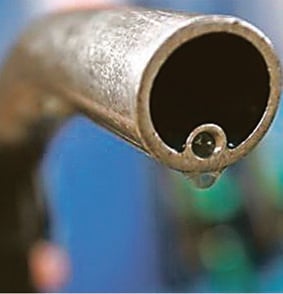
A tiny break for consumers as the ‘long-overdue’ discussion document sets out cuts that could be made to decrease the price of fuel
The energy department announced a review of the basic fuel price structures for petrol, diesel and illuminating paraffin on Friday, which might see four cost components reduced for a slight cut in the overall price, including taxes.
The basic fuel price (BFP) was first introduced in 1999 as a formula to calculate prices of the petroleum products made by the South African refining industry.
“The BFP does not take the true production and associated costs of refining locally but rather takes the view of what the alternative costs would be to import the refined product into South Africa, thereby establishing a deemed import parity price, as if there were no refining capacity in South Africa,” says the department’s discussion document, released on Friday.
In 2004 a revised BFP formula was implemented to reflect “true import parity price”.
Import parity is the price a buyer pays or can expect to pay for imported goods.
Avhapfani Tshifularo, director of the SA Petroleum Industry Association, which represents local petroleum and liquefied petroleum gas companies, says the review of the BFP was long overdue because there had been a lot of developments since its last revision.
Tshifularo said because the discussion document and the proposed changes had been released only on Friday, he still needed to study the document and its reasoning before commenting on the proposals.
The composition of the BFP is as follows: free-on-board value, freight, insurance, ocean leakage or evaporation, cargo dues, demurrage, stockholding and stock-financing costs.
The four cost components the government is recommending cut are: freight, ocean loss or evaporation, demurrage and coastal storage holdings.
These made up 3.3% of the total basic fuel price in October.
The reference import markets use for the BFP for petrol are based on the Mediterranean area, which makes up a 50% portion, and the remaining 50% is Singapore; for diesel and illuminating paraffin it is 50% from the Mediterranean area and 50% from the Arab Gulf.
The department is proposing that, based on actual import data from the SA Revenue Service from 2010 to 2016, the reference markets would be revised for petrol to 60% free-on-board (FOB), the price of goods on board a ship that is ready to depart from Singapore and 40% FOB from the Mediterranean; for diesel and illuminating paraffin the proposal is 70% FOB from Singapore and 30% FOB from the Arab Gulf.
“These combinations and weightings imply that the Mediterranean would no longer be a reference market for diesel, thereby nullifying concerns relating to the absence of quotations for appropriate sulphur grades there,” the discussion document says.
It proposes that the calculation of freight cost be changed.
At present a 15% premium is added to benchmark freight rates. However, the document says that such a premium on freight could not be justified during investigations and discussions with Platts and Argus, which provide international pricing.
“The freight rate includes all the costs associated with transporting products from the international markets to their respective destinations. The department recommends that the 15% premium should be removed from freight rates and actual freight costs be obtained from the relevant international pricing agencies,” the document says.
The document proposes that the ocean loss or evaporation aspect of the fuel price be changed.
“Some hydrocarbon molecules are lost during transportation of petroleum products due to evaporation. The advancement of technology has reduced evaporation or ocean loss significantly. Gibson Shipbrokers has recommended that evaporation should be about 0.1%. The BFP working rules make provision for 0.3% ocean loss … The department recommends that evaporation or ocean loss be reduced from 0.3% to 0.1% as recommended by Gibson Shipbrokers.”
On demurrage – a charge payable to the owner of a chartered ship on failure to load or discharge the ship within the time agreed – the period included in the BFP calculations is three days.
“The department obtained data from Transnet’s National Port Authority, which indicated that the average demurrage is 1.5 days to dock or berth and offload petroleum products in Durban.
However, it might take longer than three days in adverse weather conditions.
“The department recommends the demurrage days be reduced from three to two days, based on information from the Transnet National Port Authority which shows that it takes, on average, 1.5 days to dock and offload petroleum product vessels at their harbours.”
The discussion document proposes a change to the way in which coastal storage shock holding costs are dealt with.
“The basic fuel price formula caters for 25 day’s storage and none of the refiners keep stock for 25 days because it is in their interest to get the products into the market as quickly as possible.
“It is highly unlikely that independent wholesalers would keep products for 25 days.
“The department recommends that the coastal storage element should be reduced from 25 days to between 10 and 15 days.”
It said oil companies normally kept a commercial stock of petroleum products that would last for 10 to 15 days during unplanned shutdowns.
“The actual number of days will be determined once the department has obtained submissions from stakeholders.”
The department said it was envisaged that the BFP formula would be implemented next year after extensive consultation.
The deadline for submission of comments regarding the fuel price proposals is January 31.
 |
| ||||||||||||
| |||||||||||||




 Publications
Publications
 Partners
Partners








